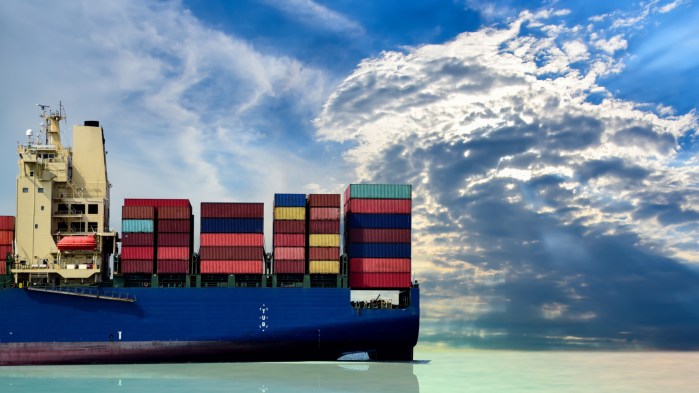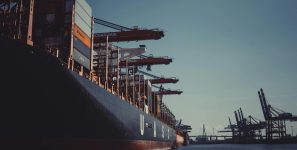IMO 2020 Fuels the Sustainable Transition of the Shipping Sector
The deadline for the much-anticipated IMO 2020 regulation has arrived and with it comes a new set of challenges, potential solutions and newfound awareness of the impact this will have on all players within the shipping sector—from shippers to fuel suppliers. Reports of vessels found to be noncompliant have already shown up in news headlines while fuel alternatives, such as fuel blends, continue to present new degrees of barriers to overcome.
There’s no doubt that the end-goal for IMO 2020 is ultimately beneficial, but attaining its goal of reduced emissions globally will undoubtedly continue to present new varieties of disruptions that industry players and lawmakers around the world must strategically think through. David McCullough, a partner in the Energy & Infrastructure practice group at the New York office of Eversheds Sutherland, discussed with Global Trade the ways the industry is handling compliance so far.
“For shippers, it’s a contractual and compliance issue,” McCullough explains, “meaning reviewing their contractual agreements to charter the vessels to determine what liability is being shifted to them and their contracts to purchase bunker fuel, all while trying to find the appropriate balance of where liability should fall in the event of noncompliance.
“The second aspect is to review their compliance procedures, namely reviewing sampling and testing procedures recommended by the IMO and IMO 2020 itself,” McCullough continued. “It’s also a document retention aspect because under certain charter party agreements, they can be liable for noncompliance in the bunker delivery notes or for general noncompliance.”
McCullough noted that “For the first time ever, bunker fuel tanks are needing to be cleaned and that is largely on the owner and operator of the vessel. The individual shipper may need to coordinate with them to ensure that has happened. Being proactive can mean looking at their vessel owner’s implementation plan and ensuring these have been implemented without issue. The vast majority of companies will comply, but there’s likely a very discreet universe of companies out there that may not comply with the IMO 2020 requirements or have taken minimal steps at this point. Analysts often say these companies represent between 10-20 percent of voyages in the first year of IMO 2020.”
Beyond the issue of noncompliance remains unanswered questions to existing and potential disruptions with the regulation, from contracts and jurisdictions right down to fuel components and the controversial provisions found in the Fuel Oil Non-Availability Report (FONAR). How these issues will be handled in unique and changing circumstances remains unknown and it’s uncertain how the answers will come about and what their impact will be on industry players.
“The FONAR legal standard states that the vessel needs to make best efforts to find compliant fuel but need not deviate from its voyage plan in doing so,” McCullough clarifies. “This is a real open question, specifically for port states, in how liberal they will be with these provisions. We don’t have a definition over this standard yet. Does not deviating from your voyage plan mean shippers don’t have to look for a different berth at the same terminal or a different dock or anchoring point? What about a different terminal within the same port? What about a different port that is nearby?
“Industry players also aren’t sure if they will need to look at the availability of compliant fuel oil or if there’s a need to look at the availability of distillate fuel because presumably, in many ports, there will be ultra-low-Sulphur distillate or low Sulphur distillate fuel available. There is the question if companies will have to be required to put No. 2 ULSD into the bunker fuel tank at an extreme premium or not. This is unlikely, but those questions and how individual countries implement those standards are real implementation questions. If they’re overly lenient in issuing FONARs, it could undercut the market for low-Sulphur fuel.”
McCullough goes on to explain additional associated risks can result in a noncompliant blend, vessel engine performance issues or the fuel and distillates separating, creating added issues in compliance. There’s also the concern of the distillate fuel cleaning the bunker fuel tanks and knocking loose the residue not previously able to be cleaned, according to the law partner.
“Compatibility of fuel blends could remain a challenge for some time—only time will tell if this is a real concern,” McCullough says. “The industry has a new product that is coming on the market meeting the IMO 2020 standard using blends of fuel oil and distillate of varying degrees. This results in different characteristics and components and it’s unknown how a blend created in one jurisdiction reacts with a blend from another. This is still an open question and something that is of significant concern.
“We might start seeing a rebalance in the marketplace as far as contractual provisions go as time goes by, with some counterparties requiring that the new fuels will be compatible with the fuel existing in the tank, or bunker fuel suppliers stating that their fuel is compatible with certain type of blends.” He adds it will be the marketplace that determines that issue.
These unresolved challenges and works in progress arrive as compliance efforts directly impact market investments, specifically in the United States and Singapore. Global companies and competitors that get away with noncompliance from a regulatory or a contractual standpoint ultimately undercut compliant company business models. Because these regions are heavily invested in regulations such as IMO 2020, there lies an expectation for enforcement. Whether these challenges are addressed now or later will be seen in the weeks to come as more shippers are faced with tough decisions if they want to continue operations.
_______________________________________________________________

David McCullough is a partner in the Energy & Infrastructure practice group at the New York office of Eversheds Sutherland (US) LLP.
He adds to the above: “Certain countries–such as the United States and Singapore—are well-positioned to comply with the standards in terms of availability of low-Sulphur fuel and active companies in those jurisdictions that have made significant investments in those jurisdictions have really wanted to see robust compliance and enforcement due to the local interests that have made such investments and their concern that noncompliance just undercuts their investments. There’s a number of companies with very significant financial incentives to ensure robust compliance with the standard and as a result, because you have two countries (U.S. and Singapore) with high interest and investment in seeing this law enforced, the industry will very quickly see the rates of compliance increase significantly.”





Leave a Reply